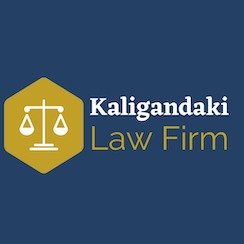Best Civil Rights Lawyers in Kathmandu
Share your needs with us, get contacted by law firms.
Free. Takes 2 min.
List of the best lawyers in Kathmandu, Nepal
About Civil Rights Law in Kathmandu, Nepal
Civil rights are the fundamental rights and freedoms that every individual is entitled to. In Kathmandu, Nepal, civil rights are protected by the Constitution and various legislation. These laws aim to ensure equality, dignity, and justice for all residents of Kathmandu, regardless of their race, gender, religion, or other protected characteristics.
Why You May Need a Lawyer
Legal representation may be necessary in various situations where your civil rights have been violated. Some common situations where you may need a lawyer specializing in civil rights include:
- Discrimination in employment, education, or public services
- Police misconduct, such as excessive use of force or false arrest
- Violation of freedom of speech, assembly, or religion
- Unfair treatment or harassment based on race, gender, or other protected characteristics
- Landlord-tenant disputes involving discrimination or unfair treatment
Local Laws Overview
The Constitution of Nepal provides the foundation for civil rights in Kathmandu. It guarantees equality, non-discrimination, and protection of fundamental rights. Some key aspects of local laws related to civil rights in Kathmandu, Nepal include:
- Right to equality and non-discrimination
- Freedom of speech, expression, and opinion
- Freedom of assembly and peaceful protests
- Right to legal representation and fair trial
- Protection against torture, cruel, inhuman, or degrading treatment
Frequently Asked Questions
1. Can I file a case for discrimination at my workplace?
Yes, if you have experienced discrimination at your workplace based on your race, gender, religion, or other protected characteristics, you can file a case under the relevant anti-discrimination laws.
2. What should I do if I believe my civil rights have been violated?
If you believe your civil rights have been violated, it is important to document the incident, gather evidence, and consult with a civil rights lawyer who can guide you on the appropriate legal actions to take.
3. How long do I have to file a complaint or lawsuit for a civil rights violation?
The time limit for filing a complaint or lawsuit for a civil rights violation may vary depending on the specific circumstances and the type of claim. It is recommended to consult with a civil rights lawyer as soon as possible to determine the applicable deadlines.
4. Can I seek compensation for damages if my civil rights have been violated?
Yes, if your civil rights have been violated, you may be entitled to seek compensation for damages, including emotional distress, financial losses, and any harm suffered as a result of the violation.
5. Are there any government agencies or organizations that can assist with civil rights issues in Kathmandu?
Yes, the National Human Rights Commission of Nepal is a government agency that investigates human rights violations, including civil rights violations. Additionally, non-governmental organizations such as the Advocacy Forum and Human Rights Organization of Nepal provide support and resources to individuals facing civil rights issues.
Additional Resources
- National Human Rights Commission of Nepal: https://www.nhrcnepal.org/ - Advocacy Forum: https://advocacyforum.org/ - Human Rights Organization of Nepal: https://hron.org.np/
Next Steps
If you require legal assistance for a civil rights matter in Kathmandu, Nepal:
- Compile any relevant information, evidence, and documentation related to the violation of your civil rights.
- Research and identify reputable civil rights lawyers or law firms in Kathmandu who specialize in your specific issue.
- Schedule a consultation with a civil rights lawyer to discuss your case, provide the necessary information, and seek their expert advice.
- If you decide to proceed with legal action, work closely with your lawyer to file the appropriate complaints or lawsuits and follow the legal process.
- Throughout the process, maintain open communication with your lawyer, provide any additional information or evidence they may request, and follow their guidance.
Lawzana helps you find the best lawyers and law firms in Kathmandu through a curated and pre-screened list of qualified legal professionals. Our platform offers rankings and detailed profiles of attorneys and law firms, allowing you to compare based on practice areas, including Civil Rights, experience, and client feedback.
Each profile includes a description of the firm's areas of practice, client reviews, team members and partners, year of establishment, spoken languages, office locations, contact information, social media presence, and any published articles or resources. Most firms on our platform speak English and are experienced in both local and international legal matters.
Get a quote from top-rated law firms in Kathmandu, Nepal — quickly, securely, and without unnecessary hassle.
Disclaimer:
The information provided on this page is for general informational purposes only and does not constitute legal advice. While we strive to ensure the accuracy and relevance of the content, legal information may change over time, and interpretations of the law can vary. You should always consult with a qualified legal professional for advice specific to your situation.
We disclaim all liability for actions taken or not taken based on the content of this page. If you believe any information is incorrect or outdated, please contact us, and we will review and update it where appropriate.

















